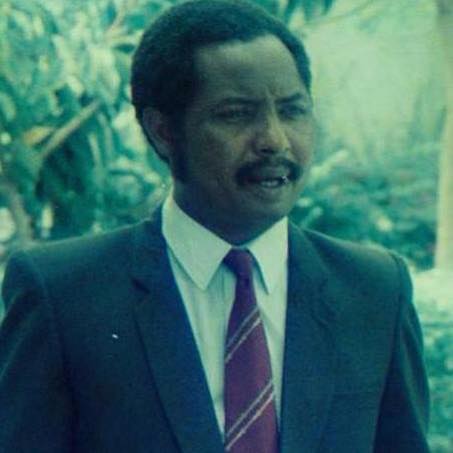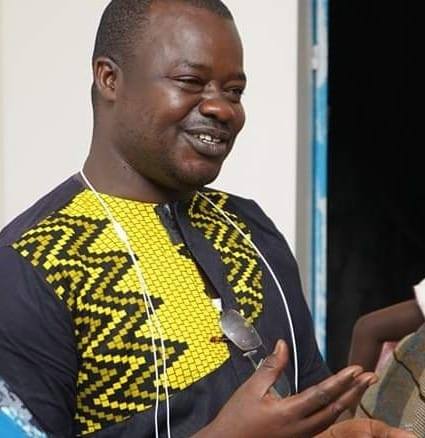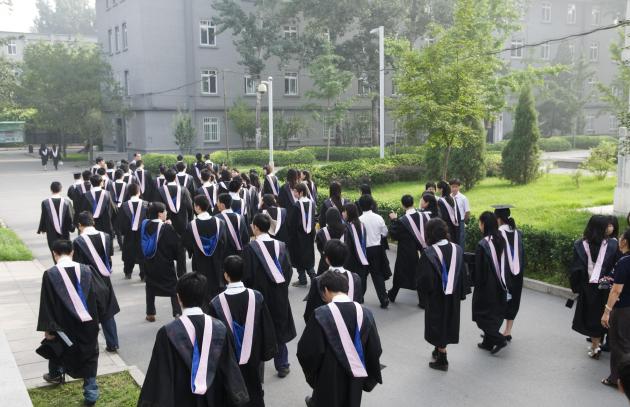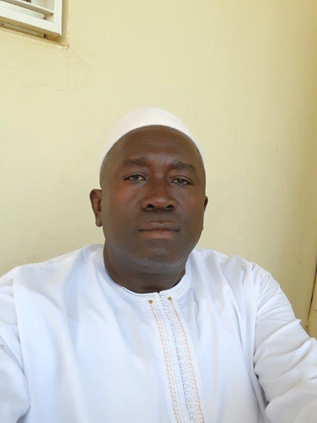Safety of Journalists: National response to end crimes against journalists
Dr. Baba Galleh Jallow, Executive Secretary, TRRC
How do we ensure the safety of journalists? How does the nation respond to end crimes against journalists? How do we universalize in our country the understanding that journalists deserve to be honored and to be protected because journalists are our country’s best friends, and therefore our best friends, and the best friends of generations yet unborn.
How do we understand and embrace the understanding that what journalists seek is the nurturing and preservation of the nation, and that they therefore deserve the respect and the protection of the nation? How we universalize the understanding that true journalists are always inspired by the vision of a society of peace and prosperity, a society in which human beings live good and decent lives, free of poverty, free of worry, and free of violations of their human rights and dignities?
We can start doing all of the above by honoring the memory of Deyda Hydara, by reflecting on his life, and by ensuring that his family and the entire nation get the justice and closure we deserve.
Let me say on behalf of the Commissioners and staff of the TRRC, that we are fully committed to this national response to end crimes against journalists by ensuring that the truth about crimes against journalists like Deyda Hydara, Chief Ebrima Manneh and others is established, and that their families and the Gambian people get the justice and closure they deserve. In this lecture, we endeavor to contribute to the conversation about who is a true journalist, what motivates true journalists, and how important true journalists are to the overall welfare of the nation.
True journalists are never inspired by hatred of the government or the head of state as is often alleged. Rather, true journalists are inspired by a deep-seated and well justified dislike of political injustice because they know that political injustice is subversive of human progress and the human spirit itself.
True journalists understand that political injustice plants anger and propagates the seeds of needless animosity and conflict in society.
They understand that political injustice generates a culture of social hostility, suspicion and hypocrisy that has the potential to destroy the nation. And they understand that political injustice destroys the human potential to grow in life-enhancing ways.
For this reason, true journalists may often speak out in anger, but always in anger inspired and moderated by love of nation, by a desire to bring the greatest good to the greatest number of the nation’s citizens.
True journalists speak to the nation, which is to say they address both the government and the people; and they speak for the nation, which to say they speak on behalf of both the government and the people.
True journalists seek the general welfare of the nation, which is to say the welfare of all citizens of the nation, including those in government, however hostile they may be. The fairness, the justice and the rights advocated by true journalists benefit every part of the nation, which is to say every citizen of the nation.
A possible exception is that small number of citizens, especially in dictatorial regimes, whose personal interests are not compatible with the interests of the nation and who relentlessly place their personal interests over and above the interests of the nation.
True journalists persistently insist on respect for human rights, the rule of law and justice in their society, hoping that their relentless advocacy, explanation and analyses of the harmful effects of injustice will help pave the way for a healthier, more vibrant, dynamic and just society than the one in which they live.
When the voice of true journalists are heard and understood by a critical mass of citizens in a country, revolutions occur; not necessarily “revolutions” imposed through the barrel of the gun, but revolutions of the mind manifested through an indomitable expression of the popular will against dictatorship and injustice.
Because of the transformative potential of their voices, dictatorships try to silence true journalists and to prevent their voices being heard by a critical mass of citizens.
The good news is that in all cases, dictatorships fail to silence true journalists precisely because they embody and speak the truth and the truth can never be silenced. They failed to silence Deyda Hydara because the truth Deyda Hydara embodied and spoke is beyond the power of humans to silence.
Yes, true journalists are often critical of government officials, but only to the extent that they equate themselves with the State, which is a national public institution larger than and not reducible to the status of any single individual.
True journalists understand that government officials cannot be personifications of the State by any stretch of the imagination. They insist that the State as an institution belongs to the Nation and is subject only to the Nation, the people, all the citizens of a country.
They insist that both the State and government officials are produced by the Nation and cannot possibly exist or operate outside, over, or above the Nation. In other words, true journalists understand that neither the State nor government officials can be above the laws of the land. Sadly, under dictatorships, some government officials pretend to be bigger than the nation, which is much like the yoke of an egg pretending to be bigger than the cell within which it is embedded – an obvious impossibility.
The quixotic attempts of African dictators to become bigger than their countries explain the mystery of their political self-flagellation: they feel the pain but are too weak to concede that punishing the nation is punishing the state because the state is part and parcel of the nation.
Every injury inflicted upon the nation is an injury inflicted upon the state. And so dictatorships engage in mindless self-destruction even as they mindlessly destroy the nation in pursuit of their own selfish interests. Political injustice perpetrated by a state is always a double-edged sword that cuts both ways. It destroys both the state and its victims.
Deyda Hydara was a true journalist. He was a true journalist who remains, to parody the title of D. A. Jawo and Ahmed Alota’s book on him, a living mirror in which all true journalists see themselves; a mirror in which we all see ourselves and will continue to see ourselves.
He is also a mirror in which we see the senseless contradictions of life, and of the futility of trying to silence the truth by silencing people who tell the truth. Inevitably, our national response to end crimes against journalists demands of us to ask and answer difficult questions.
Questions such as how we can begin to understand the brutal murder of a kind and gentle man whose only intention was to help save his alleged murderer from failure. Deyda was not out to oppose or harm anyone. Deyda was not out to subvert the security of anyone? Deyda was out to save The Gambia by helping Gambians understand where some of them were going wrong so they could make amends and succeed in nurturing and preserving the common good.
But the ignorant mind that chooses to stay willfully ignorant is always hostile to the enlightened mind that tries lift it out of ignorance. So it is of all true martyrs. So is it with Deyda Hydara. Deyda Hydara is a martyr for the truth and martyrs for the truth never really die. They live on in the heart, the mind and the spirit of the nation.
Deyda Hydara knew that politically speaking, he lived and worked in a period of universal deceit. He knew that he lived during times when truth telling was a dangerous enterprise. And he knew that in those days, those who stood up for the truth, those who stood up for justice, those who stood up for honesty and integrity in the conduct of our national affairs were considered enemies of the state and often struck down.
He knew, as George Orwell puts it, that “in a time of universal deceit, telling the truth is a revolutionary act.” And yes, Deyda Hydara was an unapologetic revolutionary. A revolutionary for the truth. He chose to live his live as a revolutionary for the truth even though he knew that telling truth to power, telling the truth that could heal power and heal the nation could cost him his life. Yet, he did not let the fear of death stand in his way of telling just that truth to just that power.
And Deyda did not speak truth to power in a spirit of meekness. Yes, his tone was mild, but the truth he told was loud, clear, and dazzling in its beauty and in the depth of its humanity. Deyda knew that God, history and the future were all on the side of truth and therefore on his side.
He was therefore a willing and brave soldier for the truth, a soldier for the freedom of Gambians from the clutches of tyranny and injustice. Often, people in power with a tendency to be tyrants do not realize that they are in fact the first victims of the tyranny they inflict upon others.
Tyranny is not something people pick up from somewhere outside of themselves to inflict upon others. Tyranny comes from within humans; it is a mass of negative energy that dwells within humans. It is a cancer within humans that, left unchecked, will eventually destroy its host. Deyda wanted to save those who suffered from the cancer of tyranny from self-destruction. He was killed for his pains.
The good news is that because Deyda Hydara embodied the truth, he lives on among us. Who can say Deyda is not with us in this hall tonight? Who can say Deyda is not right here in this hall, celebrating with us the manifestation of the truth he advocated, the fulfillment of his prophesy about what happens to people and governments who do not listen to reason, heed good advice and shun injustice? Who can say that as he celebrates with us today, Deyda is not happy that he accomplished his mission? And who can deny that Deyda is happy that he has entered and will forever stay in the good books of history; that he has earned a place of honor in our national memory and the annals of Gambian history because he spoke the truth that eventually set us free?
That he is being celebrated today is ample testimony that Deyda’s spirit lives on and inspires the nation towards a love for truth and justice. Meanwhile, those who decided to take his life suffer the hell of eternal infamy – precisely the tragic fate that Deyda was trying to save them from. What better reward than an eternal good name in the collective memory of the nation? What worse punishment than eternal infamy in the collective memory of the nation?
Deyda had the choice to choose between freedom from the danger of the assassin’s bullet and freedom to live his life in truth and for truth. He chose freedom to live his life in truth and for truth. He chose freedom to fully express his personality as a man of truth who would rather die than remain silent in the face of tyranny and injustice.
For this reason, Deyda will continue to inspire in us the love of truth and justice and a hatred of injustice especially when it comes to the administration of our national affairs. Long after we all are gone to join him, Deyda’s name will be honored by future generations of Gambians. That is the ultimate victory. Deyda’s victory.
It is pleasing to note that over ninety percent of the truth about Deyda Hydara is known. The truth that he was a kind and gentle man of truth; the truth that he was a man who in kindness and sympathy reached out to those who wanted him dead, to show them how they could save themselves from self-destruction. The truth that Deyda is a man who stands totally vindicated by history, a man who will forever be honored in the annals of Gambian history and the history of world journalism.
I want to reassure the Gambia Press Union and the general public that the TRRC stands ready to work with the Gambian people to discover the remaining truth about Deyda: We will leave no stone unturned in order to investigate and establish that truth about Deyda’s assassination, to accord justice and closure to his family and the Gambian people, and to ensure that never again shall the Gambian people allow a dictatorship to exist in our beloved country. We also assure the GPU and the general public that the TRRC is totally impartial and independent and will remain totally impartial and independent in its work. As we embark upon this challenging task, we seek the support and blessings of the Gambia Press Union, the rest of the Gambian people and all friends of The Gambia.
May God continue to bless Deyda Hydara, his soul and his memory. May we long continue to celebrate his life and legacy.





